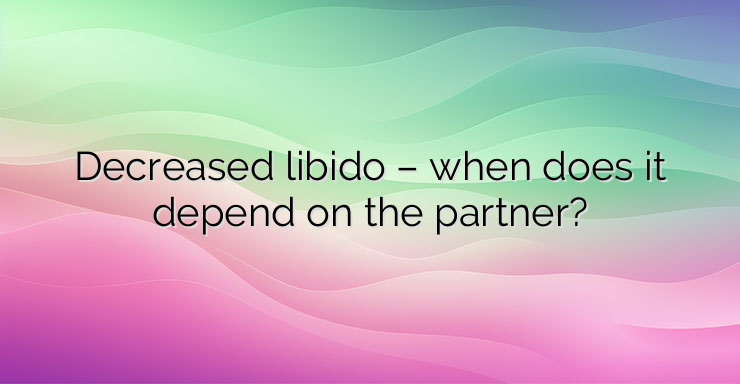Decreased libido or desire for sexual intercourse is one of the most common complaints leading people to consult psychologists and sexologists. Many factors play a role in the levels of sexual desire – it does not have a constant value and changes often under the influence of: climatic changes, hormonal fluctuations, health status, mood, personal experience, social factors, as well as the often overlooked dynamics of the relationship between two people. Libido is a highly individual characteristic of each individual, and even in couples who have been together for a long time, sometimes unsynchronized ups and downs of desire occur. Lack of communication and freely stating preferences for the frequency of sexual contacts can seriously damage intimate relationships. If one “half” of the couple experiences a stronger drive, especially during a period of decreased libido of the partner, often sex is unsatisfactory for both. This leads to additional psychoemotional consequences. Men most often decide that they did not perform well enough and did not satisfy their intimate partner. Women, on the other hand, experience self-critical emotions directed at their appearance and behavior. Both of these observed reactions make it difficult to develop a relationship and can lead to low self-esteem, depressive states and stress reactions that further lower sexual desire, at least for a certain period of time. NEWS_MORE_BOX Similar discrepancies in the levels of sexual desire are described in detail in the classic study of sexual sciences by B. Zilbergeld and K. Ellison “Desire discrepancies and arousal problems in sex therapy” from 1980. According to scientists, the presence of such discrepancies does not in any case mean that one partner has a “normal” libido and the other does not. Libido has periodically changing values. The intimate attitude towards the body and the partner’s desires are key to a healthy relationship between them, but this does not mean that the one with a lower libido should “catch up” to his partner. To avoid this problem, as Ellison and Zilbergeld’s research points out, direct, calm communication that focuses not on the problem but on the solution is most effective. Clarifying different habits, preferences and desires, especially about the frequency of intercourse, is a key step towards a better sex life for both of you. By collectively bringing harmony into intimate life, many of the psychological causes of low sexual desire are eliminated.


Leave a Reply